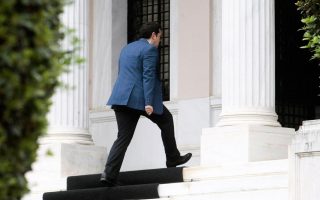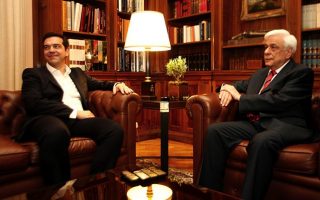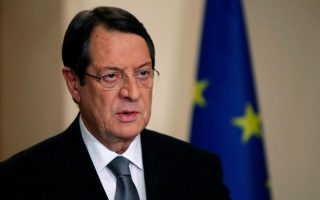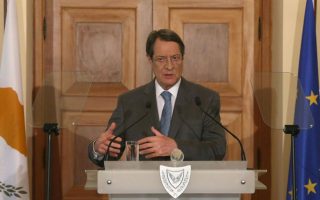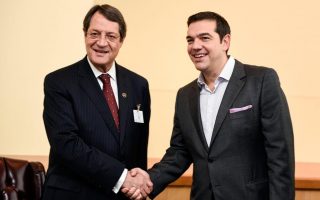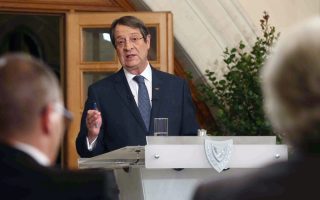Cyprus leaders seek deal in ‘historic opportunity’ for peace
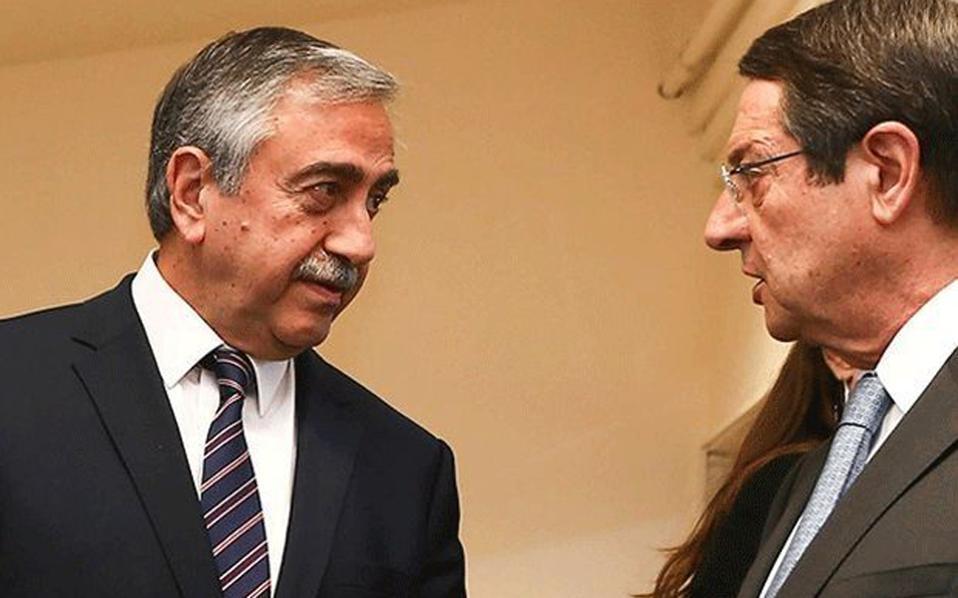
The leaders of both sides of ethically divided Cyprus have sought to temper hopes of a swift breakthrough in unification talks that started on Monday, initially focusing on how to handle property disputes stretching back more than 40 years.
Hoping to succeed where others failed Cyprus President Nicos Anastasiades and Turkish Cypriot leader Mustafa Akinci met in Geneva to tackle dozens of disagreements stemming from the 1974 division of the Mediterranean island.
The talks between the two are scheduled to broaden to include other nations with a stake – Britain, Greece and Turkey – on Thursday.
Both leaders have been careful this week to cool any expectations of a deal. Conference organisers have also begun suggesting the process might be more open-ended than initially thought.
Arriving at the United Nations European headquarters in Geneva and asked if he was optimistic, Anastasiades said: "Ask
me when we are finished."
Akinci was equally circumspect, saying on Sunday: "We are not pessimistic, but I see no need for exaggerated expectations that everything will just happen. We are expecting a difficult week."
New UN Secretary-General Antonio Guterres, who was expected to attend the conference on Thursday, has described the talks as an "historic opportunity" for a breakthrough.
But the issues are difficult. Power-sharing, redrawing territorial boundaries, and security issues in a future reunited homeland are key sticking points in negotiations that have resulted in logjams in the past.
Property rights were on the agenda on Monday, a sensitive issue for thousands of internally displaced people who were driven from their homes on one side of the island to the other in and after 1974.
It was then that Turkey invaded the island's north after a brief Greek-inspired coup. The seeds of partition, however, were sown years earlier, soon after independence from Britain in 1960.
A combination of restitution, compensation and exchange were being discussed, the financing is unclear. IMF and World Bank officials in Geneva would be discussing the issue with the two sides on Monday.
Caution
Despite the caution expressed, mediators are keen to capitalise on the momentum of two moderates at the helm of their communities before domestic election cycles dislodge the process.
The status of some 30,000 Turkish troops stationed in Cyprus's north is crucial. The Greek side insists they must all be pulled out, while the Turkish side says some must remain.
That issue will dominate discussions between Britain, Turkey and Greece on Thursday. The three are guarantor powers of Cyprus under a 1960 treaty that granted the former colony independence.
Britain retains two strategically important bases on the island which are used in operations against Islamic State. London has said it would be willing to relinquish about 49 percent of the 98 square miles presently held to facilitate territorial adjustments. Much of that territory is now civilian.
Any agreement must be put to separate referendums in the two communities, with diplomats anticipating a vote around June. A previous peace blueprint put to referendum in 2004 was accepted by Turkish Cypriots but rejected by Greek Cypriots.
Analysts shy away from suggestions the process could be a last chance for peace, but say a unique opportunity could be lost in settling a conflict which has brought Greece and Turkey to the brink of war, and frustrates Turkey's ambitions of joining the EU.
"If this time it fails between these two pro-solution leaders…then a huge motivation will be lost," said academic Ahmet Sozen, a Cypriot who has followed on-off peace talks for years.
[Reuters]
